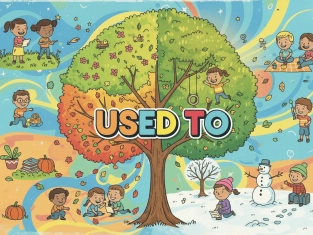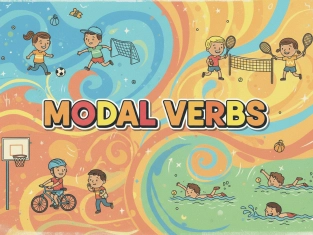Modal Verb Can
Table of Contents
Exercises
Explanation
We use can to talk about:
-
ability – what someone knows or is able to do
-
permission – when something is allowed
-
possibility – when something might happen
-
requests – when we ask politely
Forms
|
Tense |
Form |
Example |
|
Present |
can |
I can ride a bike. |
|
Past |
could |
I could read when I was six. |
|
Future |
will be able to |
I will be able to drive next year. |
Ability
Use can or could to talk about things you are able to do or skills you have.
I can cook Italian food.
He can play basketball very well.
When we were kids, we could climb trees easily.
Permission
Use can or could to ask or give permission.
Can I sit here?
Could I borrow your pen, please? (more polite)
You can go home now.
You can’t eat in the library.
Possibility
Use can to talk about something that is possible or sometimes happens.
It can rain a lot in autumn.
Mistakes can happen.
That can’t be your phone—it’s too old!
Requests
Use can or could to ask people to do something for you.
Can you open the door, please?
Could you tell me the time, please? (more polite)
Negative Forms
|
Form |
Contraction |
Example |
|
cannot |
can’t |
I can’t drive at night. |
|
could not |
couldn’t |
I couldn’t find my bag yesterday. |
Be able to
We use be able to instead of can to talk about the future or a specific situation.
I’m able to come today.
She was able to finish her homework on time.
We will be able to visit our grandparents next month.

